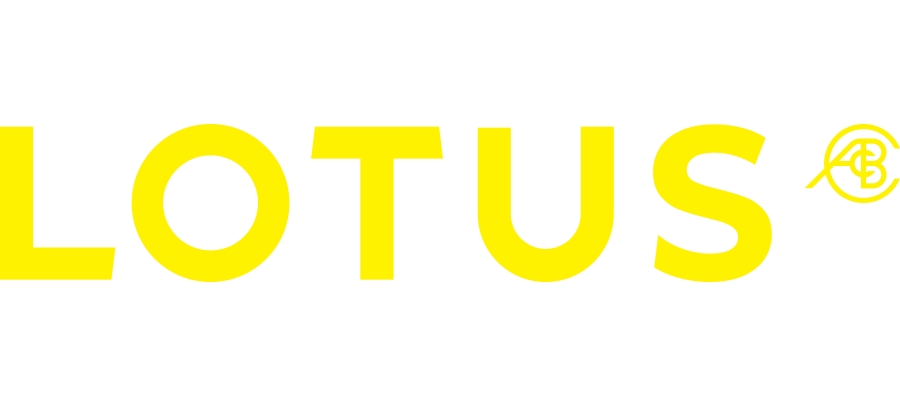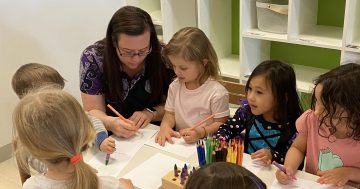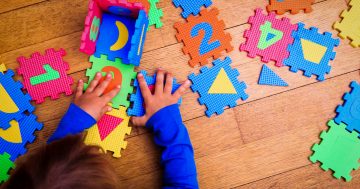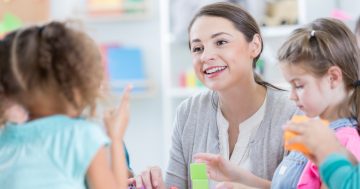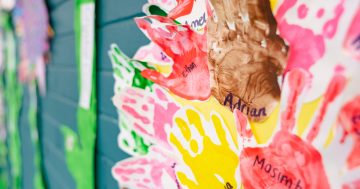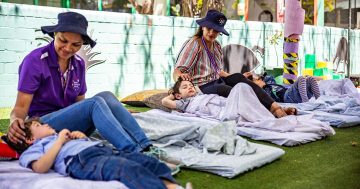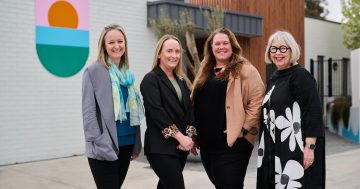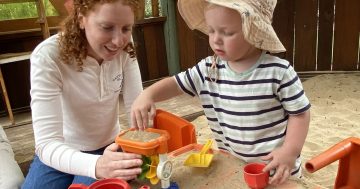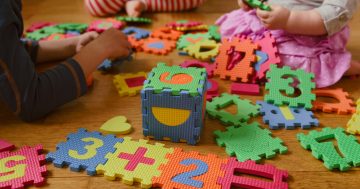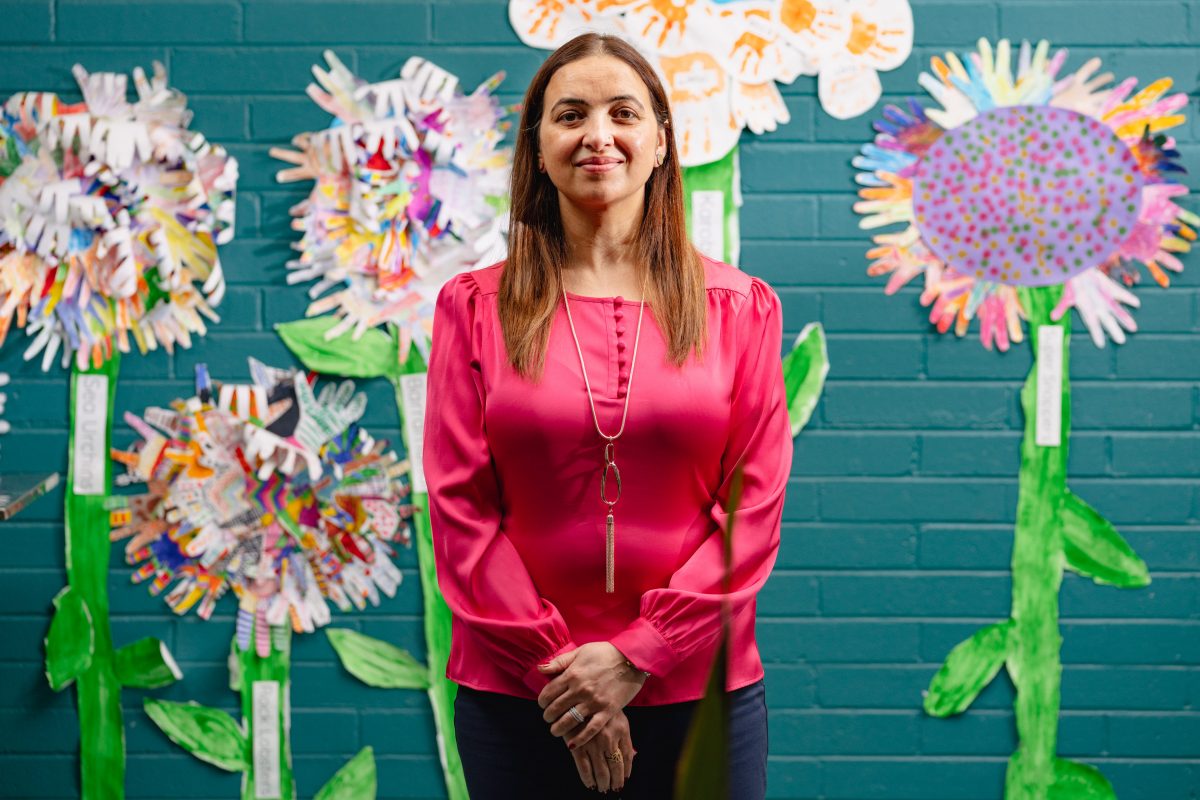
Lyons Early Learning Centre manager, Sharan Dhindsa. Photo: Liv Cameron.
With about 90 per cent of a person’s brain development occurring in their first five years, it’s no wonder higher levels of educational success, employment and social skills have been linked to participation in quality early childhood education.
Families and educators are widely recognised pillars of a child’s educational foundations. But according to Lyons Early Learning Centre (ELC) manager Sharan Dhindsa, there’s a third “teacher” in every educational setting with enormous potential to inform outcomes for children.
She says the physical spaces can significantly influence what and how children learn.
Ms Dhindsa says educators and parents should consider how a physical space encourages children to make choices, ways learning can be built into environments and how spaces can be best used to create a sense of community and belonging.
“We used to have a ‘family tree’ display on one of the walls in the centre,” she says. “But the pictures were up so high, it was clearly not for the benefit of the children.
“We moved them down so the children could see and touch them. After all, that’s their family, their photo. I have seen little ones take pictures of their mums and dads off the wall, cuddle them and put them back.
“It’s about making them feel valued in that environment and comfortable that it’s their space.”
Many of Ms Dhindsa’s philosophies are informed by the Reggio Emilia approach, which views a child as a subject with rights, who can co-construct their education.
A walk through Lyons ELC shows other examples of this pedagogy at play, in the low placement of artwork and the way children meander among activities stations, guided by their personal curiosity.


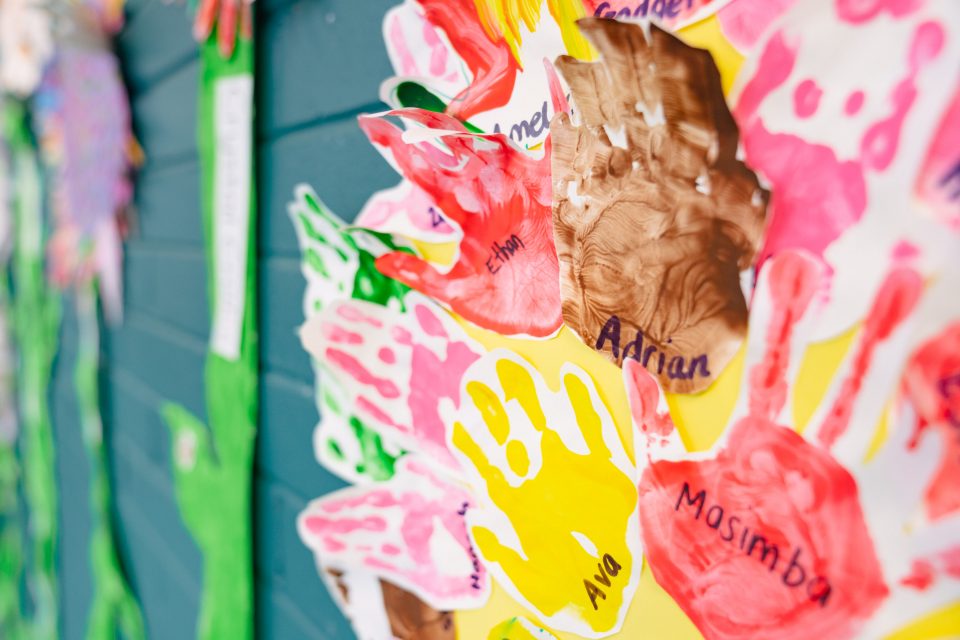
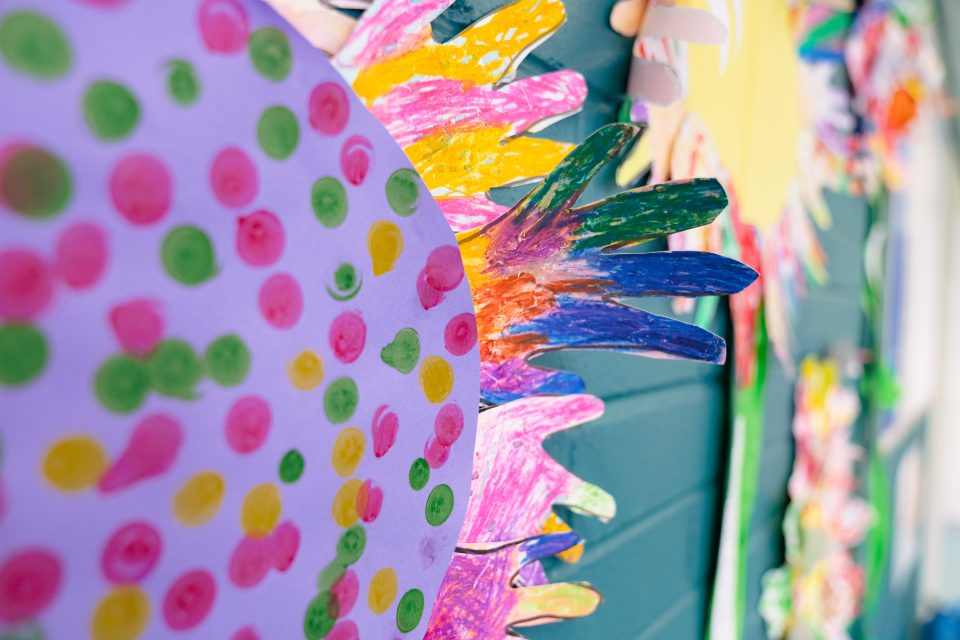
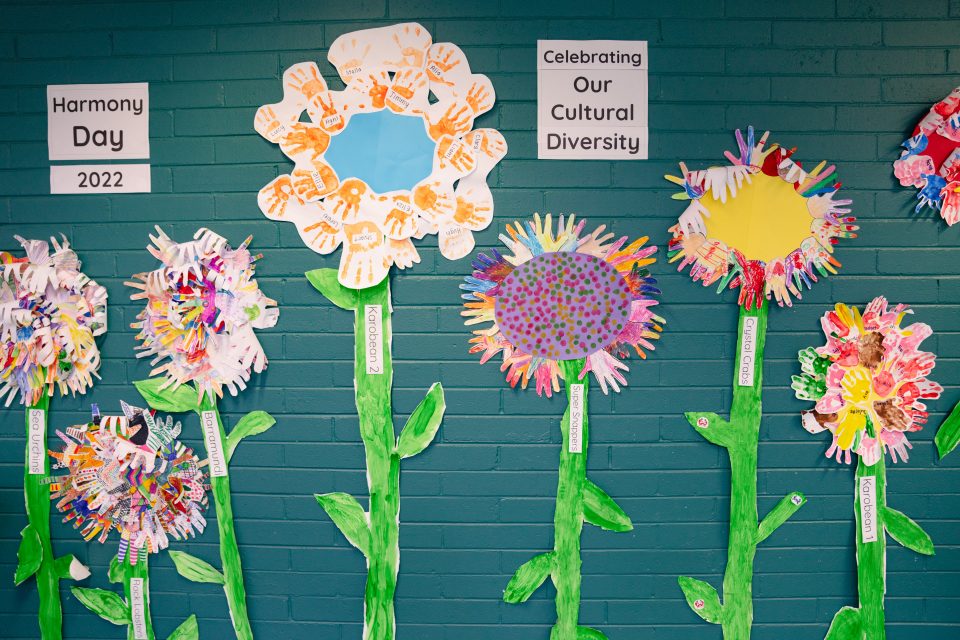
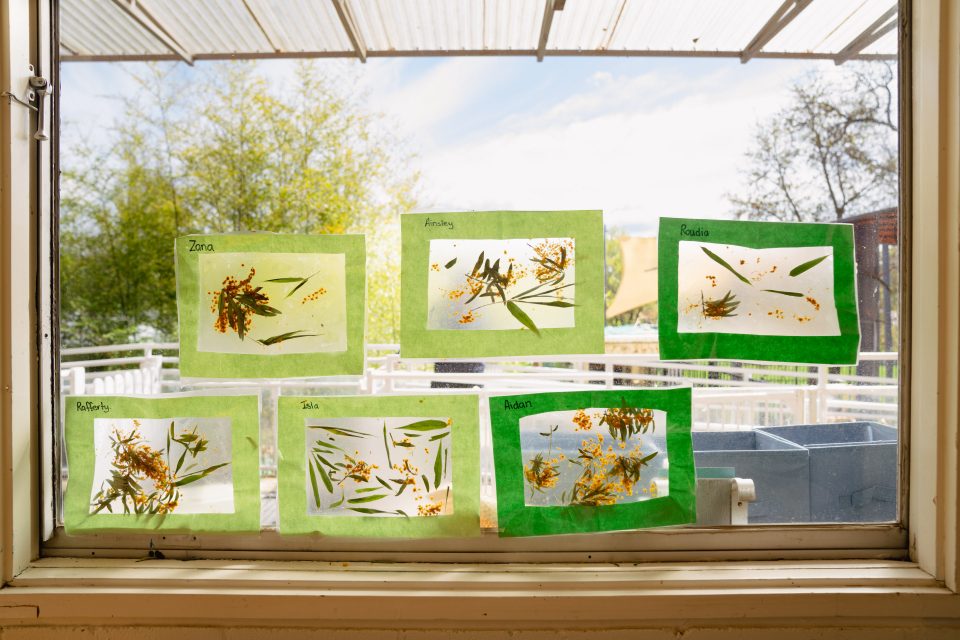
Ms Dhindsa says loosening structures helps children develop independence and self-regulation skills, including concentrating, listening, communicating, sharing and taking turns.
This can ultimately influence their confidence and independence, allowing them to develop their identities and form friendships.
“Our children and their families come from all backgrounds and run on all kinds of schedules,” she says. “We can’t expect the children’s needs to be synchronised nor do we like to force them into a routine that doesn’t work for their needs.
“For example, we serve morning tea, lunch and afternoon tea during certain windows. We let the children know when it’s available and when we’re packing up. It’s up to them to participate.
“We build flexibility into nap times, the same goes for nappy changes. We show respect to our little ones and ask them – ‘do you need a nappy change or do you need a few more minutes?’.
“There are limits and boundaries but in granting them some agency and choice early on, they’re in a position to consider their own state – ‘no, I am not hungry’ or ‘yes, I am wet’ – and make decisions accordingly. They start taking some responsibility for their physical and emotional wellbeing and developing self-awareness.”
While a child’s vocabulary often quadruples between ages two and four, Ms Dhindsa says children start to communicate long before this using the “hundred languages” spoken by all human beings.
“Even if they can’t yet speak, children communicate all the time – through their actions, expressions, even through their artwork.”
Ms Dhindsa says good early learning programs include regular excursions to extend a child’s physical learning environments.
It’s why Lyons ELC enjoys a relationship with Woden Library, where children pick out books to borrow and return.
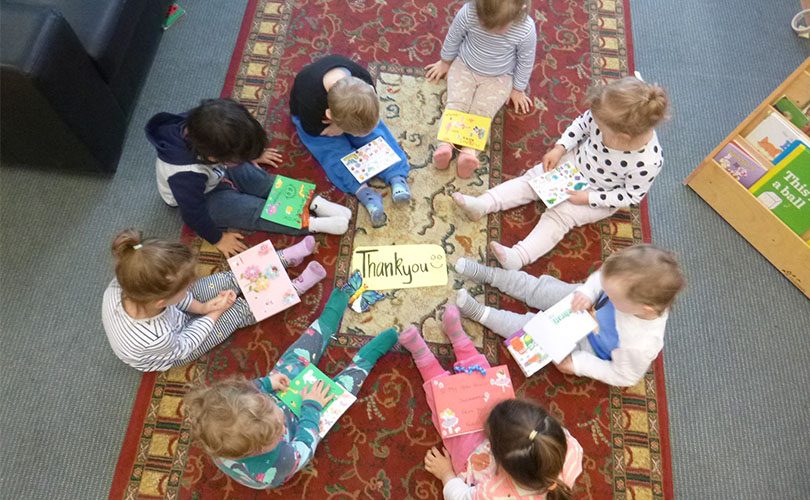
The children at Lyons Early Learning Centre receive cards of thanks for their pictures. Photo: Lyons ELC.
Managed by Woden Community Service, the library often invites the children to activities, such as smoking ceremonies during NAIDOC week.
Then there’s the odd babyccino-run at Lyons shops and regularly visiting Dr Sue’s nearby garden to learn about the plants and help tidy up leaf litter.
“It gives them opportunities to connect with their world and develop a sense of belonging, even understanding of their rights in a community and how to respond to diversity with respect.
“All these progressive learning opportunities culminate to help build a child’s social, cognitive and emotional skills in preparation for future schooling and the world at large.”
